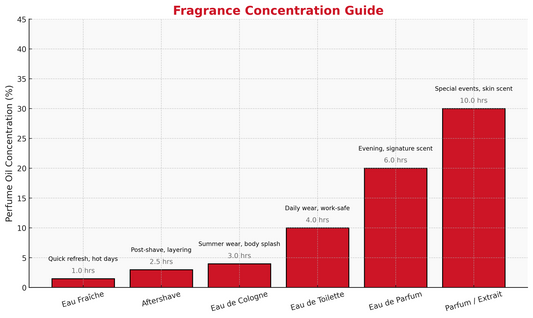Testing Fragrances on Skin - Why Is It Important?
Share
Understanding Skin Chemistry - Skin Testing
Have you ever fallen in love with a perfume—only for it to vanish from your skin within an hour or that it smells differently than on your blotter stick? You're not alone. The way a fragrance performs isn’t just about the ingredients or concentration—it’s also deeply influenced by your unique skin chemistry.
🧬 Skin Acidity & Chemistry: The Hidden Factors
Fragrance performance varies from person to person because of how skin interacts with scent molecules. Several factors can alter how long a perfume lasts and how it smells on your skin:
- Skin acidity (pH levels)
- Hormonal fluctuations
- Medications
- Diet – especially garlic, spices, or high-sugar intake
- Stress, sweat, or temperature changes
This explains why a perfume that smells divine on a friend may feel fleeting or different on you.
🧪 How to Properly Test a Fragrance
Because scent chemistry is so personal, the best way to choose a perfume is to try it directly on your skin—not on paper.
Follow these tips when sampling:
- Apply to a clean, moisturized pulse point (e.g., wrist or inner elbow)
- Avoid rubbing—this breaks down the scent molecules
- Let it settle for at least 5–10 minutes before evaluating
- Smell it in fresh air, not up-close to your skin
- Ask yourself: What mood, memory, or feeling do I want this scent to evoke?
This “smell test” helps you understand how the fragrance evolves with your body heat and chemistry.






